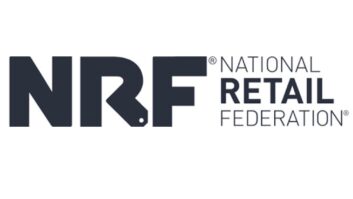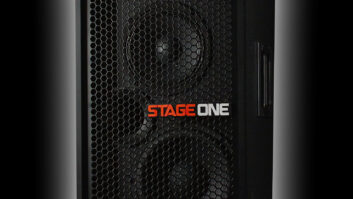The country’s top record-store chains want to drive authorized music downloading into the mass market, and if they succeed, they could ignite already hot sales of portable digital devices and encourage audio suppliers to develop digital devices that would be compatible with their service.
Motivated by declining CD sales, the chains announced plans to develop download and streaming services through joint majority ownership of a startup company called Echo. The company will use its owners’ buying power to negotiate the download and streaming rights to music, “choose a codec and digital rights management [DRM] technology, and develop some of our own technologies,” said Echo CEO Dan Hart.
“We’d like to have something out by the end of the year,” Hart said. “The first order of business is licensing. We expect we can do that in six months.” Echo won’t offer services, however, until it gets licenses from the five largest music companies and from some major independents, he said.
To the investing retailers, Echo will offer both “the basic technologies that retailers can rework on the front end” and “a complete product” on a turnkey basis, but “price, brand, and marketing will be left up to the retailer,” Hart said. Each retailer could market the services under their own brand name or under an Echo co-brand.
Echo’s license agreements will include Internet radio, interactive streaming and download services, which will allow for locking songs to a hard drive as well as transfers to portable devices and burning to a disc.
The music retailers believe their retail experience will translate into more effective marketing and promotion programs than those undertaken by the two music-company-backed streaming/download services [Pressplay and MusicNet] and by the handful of authorized services developed by third parties. Third parties include download pioneer Liquid Audio, whose assets are being sold to Anderson Merchandisers, the music distributor that wants to expand the distribution of downloaded music via retailer Web sites. Its packaged-media accounts include Wal-Mart.
“All have done various experiments, but they haven’t worked out on a mass-market scale with consumers,” said Hart. “Everything so far has been an experiment. We recognize that it’s time for a more concerted effort.”
The effort will succeed, he contended, with “the right product, aggressive marketing, and getting better pricing with the labels.” Echo will get better pricing, he continued, because “we will provide more value, which will give them more royalties.”
The investing retailers sell more than 40 percent of music software to consumers in units and dollars. The retailers are Best Buy, owner of the Sam Goody and Suncoast record chains, Hastings Entertainment, Tower Records, Virgin Entertainment, Wherehouse Music (in Chapter 11), and Trans World Entertainment, operator of FYE, Coconuts, Strawberries, Spec’s, and Planet Music.
Major music companies will participate, he contended, because of Echo’s credibility with them. Music retailers, he said, “have no interest in undercutting CD sales but are interested in getting additional revenue.” Labels, he continued, “might be suspicious that [third-party download services] are interested in digital music at the expense of CD sales.”
The legitimate download market has also been held back, he continued, because music companies have only recently begun licensing content for download/streaming services. More important, “there has been no real advertising effort to explain the value proposition [of authorized paid-for services] to consumers.”
For paid-for services to succeed, he added, operators must “offer value to compete with free alternatives.” Echo’s owners will be able to achieve that through a variety of potential strategies that complement the old model of downloading music to a PC, he said. The strategies include in-store kiosks where consumers can download music to hard-drive music portables via fast 480Mbps USB 2.0 connections from an in-store server.
“Projecting technology out 18 months, it would take weeks of downloading at home to fill a 100GB portable,” he said. “In a store, you could fill it with hundreds of songs, walk out, and listen.” Echo could offer the kiosk technology or turnkey kiosks to retailers, he noted.
Retailers could also package compressed-music portables preloaded with content, promoting some models as “jazz MP3 players,” he said. Retailers could also use downloads in promotions that could package two free downloads with the purchase of a CD.
Best Buy already offers downloads of about 200,000 songs from its Web site using technology and licensed songs available through Ecast and Liquid Audio, but “we want to collaborate to get more licenses to be more competitive than we have in the past,” said a spokesperson. The service hasn’t been interrupted by Liquid’s impending asset sale.
P.J. McNealy, Gartner research director, agreed that Echo could be more competitive than existing services such as MusicMatch’s RadioMX, Listen.com’s Rhapsody and Full Audio.
“They’re in a good position because they understand music buyers already and how to market to them,” he said. “The marketing efforts to date haven’t been that great.”
The marketing efforts of other services, he added, have been “held back” because “they all had to write big checks to get distribution licenses.” In addition, the marketing deals struck with various ISPs have been uneven, he said. “Some ISPs just put up a link.”
Echo owners’ success, however, “will come down to licensing deals, pricing, and how they differentiate themselves. They have certain advantages, but it remains to be seen what deals they will get.”
Whatever Echo’s future, McNealy expects authorized download services to grow in popularity this year because music companies have begun to offer broader licenses that allow for disc burning and transfers to portable devices. “Two years ago, they started with streaming, then locking downloads to a hard drive, and now only recently are we seeing transfers,” he said. “Labels saw each fail before they offered broader terms.”
Echo’s Hart agreed the music-company-sponsored services Pressplay and MusicNet will get more aggressive, too.













